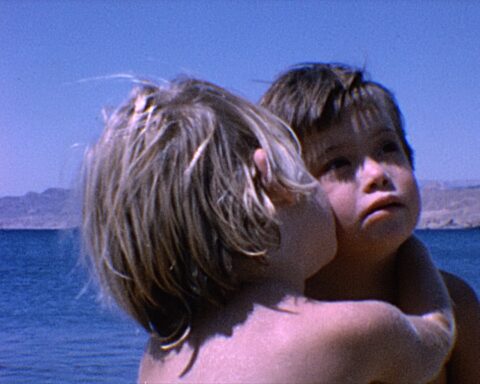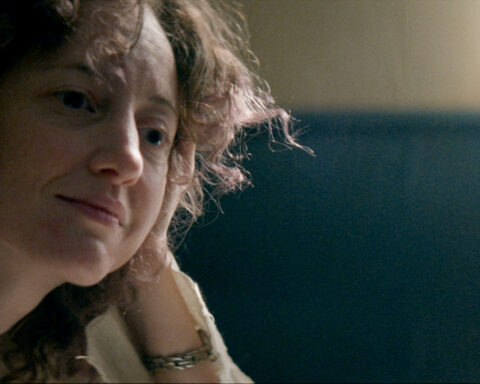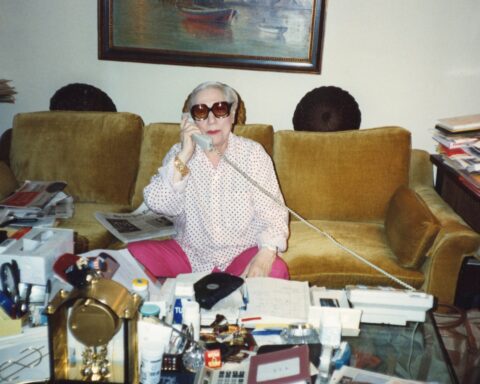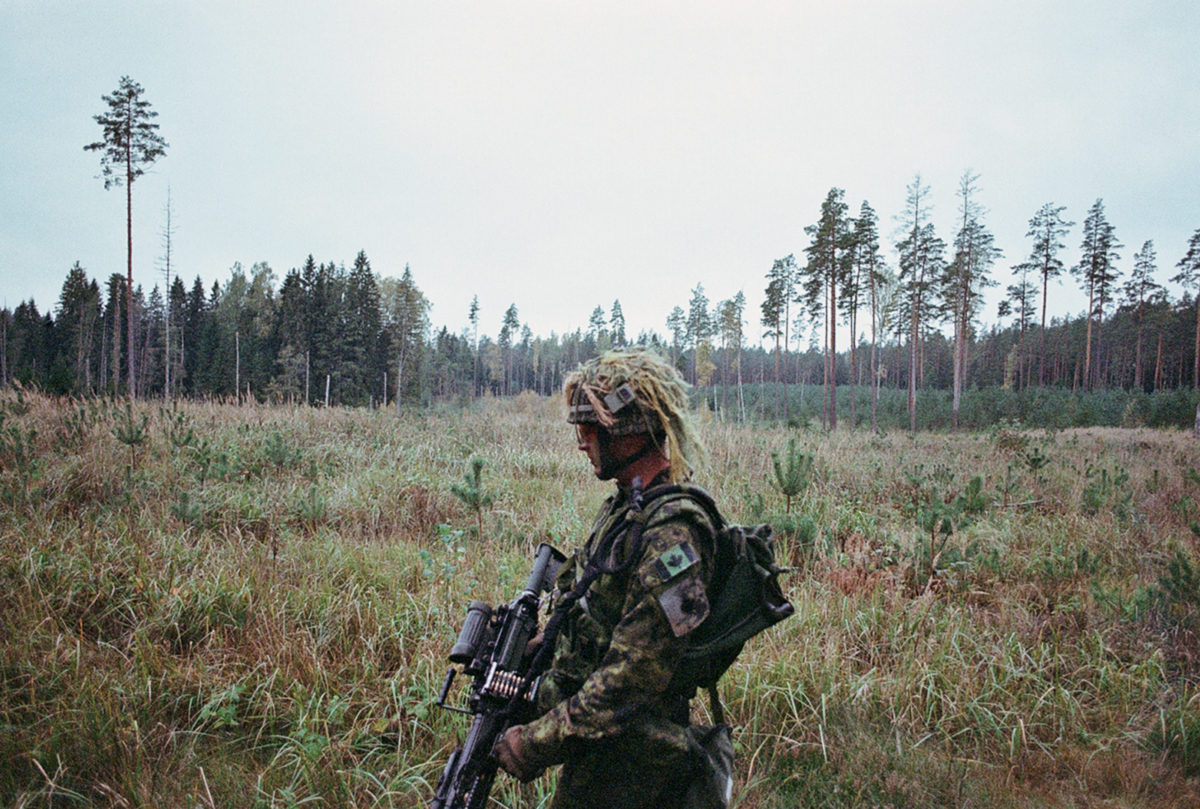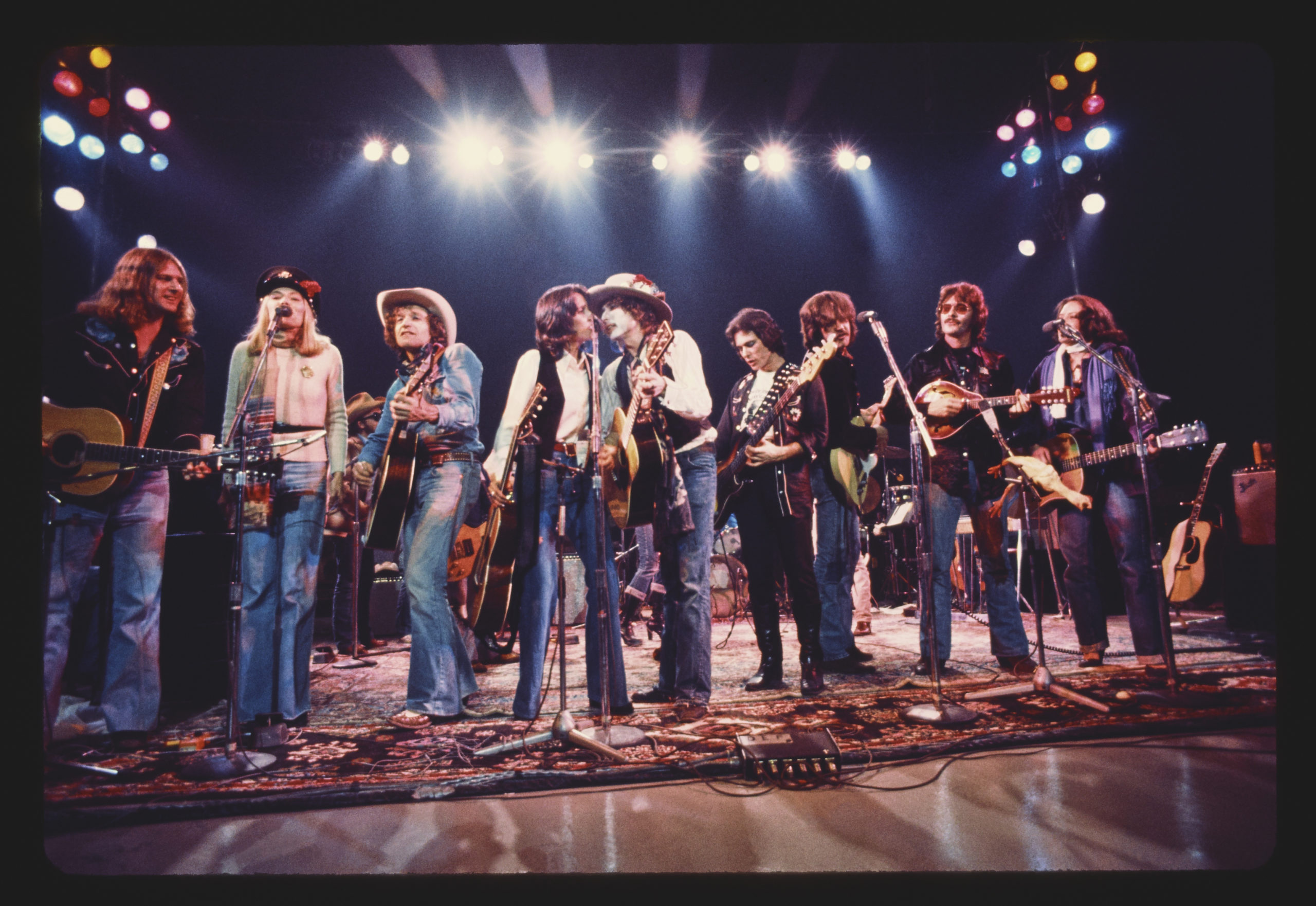Afterward
(USA, 95 min.)
Dir. Ofra Bloch
If one spends a lot of time watching documentaries, either as a critic, a programmer, or a fan, one develops certain likes and dislikes. For me, documentaries often raise red flags in two cases: when they have academics at the helm or when filmmakers inject themselves into their own stories. One doesn’t want to make an argument for two wrongs making a right, but Ofra Bloch’s Afterward delivers a stimulating personal odyssey precisely because of her intellectual background and her eagerness to put herself at the centre of her inquiry. Afterward follows the Israeli-born and New York-based Bloch as she examines the legacy of the Holocaust and humankind’s capacity for hate. This powerful film provokes conversations that are invigorating and at times palpably uncomfortable. Through Bloch’s willingness to probe her own discomfort, Afterward offers hope to heal wounds that sting today.
Bloch explains in the film’s introduction that she grew up in Israeli surrounded by Holocaust survivors. An aspiring filmmaker who became a psychoanalyst specializing in trauma, Bloch approaches her story with both the intellectual and cinematic characters of the film in mind. While academics often produce smart docs that are insufferably dry, or self-reflexive filmmakers often risk being self-indulgent, Bloch’s background prepares her for the journey. She’s a strong and insightful interviewer. She’s also the ideal character to juggle the roles of director and inquirer since her prejudices (ingrained into her as a child) offer the film’s point of origin.
Bloch reflects upon her family history and tries to comprehend a culture in which young Jews such as herself were raised to hate and fear Germans following the Holocaust. As she talks to a former neo-Nazi and various Germans still trying to make sense of their parents’ crimes, the film probes the darkest corners of hate, prejudice, shame, and guilt. She tours residential neighbourhoods in Germany that were formerly sites of Jewish ghettos. Her camera gazes upon signs that advertised how Jews had no right to own dogs or buy bread. The Germans are good about putting their past into the open, but the film takes transparency a step further as Bloch asks passersby for their impressions of the signs. She even halloos a few Germans at their windows to discuss what it’s like to live on such sites of memory. Some people don’t seem to think about it, while others carry the past with them wherever they go.
As a deep thinker, though, Bloch quickly understands her inquiry doesn’t capture the full scope of the dilemma. She’s an Israeli trying to understand hate and prejudice, looking at the past while neglecting the very act of repeating history of which she is apart. This realization tells her to look to Palestine. She confronts the divide between Israelis and Palestinians in tandem with the persecution of Jews during the Holocaust.
The dual approach injects the film with a unique power dynamic. On one hand, Afterward sees a child of the surviving generation seek clarity from the descendants of her oppressors. On the other hand, Bloch pivots to look the other way and understand the extent to which she and her people have oppressed others. Her conversations with the Palestinian subjects are particularly revealing. The final act of the film sees Bloch listen to Bassam Aramin, a Palestinian man whose daughter was killed by an Israeli soldier, as he recalls the experience of watching Schindler’s List, identifying with the Jews, and coming to understand their perspective in the present situation.
Most notable is an engaging one-on-one with Samah Jabr, a Palestinian psychiatrist, who acknowledges the horror of the Holocaust but reminds Bloch of the cyclical role it plays in history. “The history of the Holocaust is silencing the world,” she says, noting how some Israelis evoke the displacement following the Holocaust to justify the creation of Israel in 1948—or “nakba” (catastrophe) as the Palestinians call it.
Afterward culls through archival images of the escalating violence between Israel and Palestine since the occupation. There are jarring and graphic images, including the murder of a wounded soldier, that illustrate the mundane circumstances of dehumanization that fuel the divide. These images offer direct parallels to the banally evil acts that Bloch probes in her conversations with Germans. When she outlines to Jabr her work in the Israeli army, Bloch only then articulates that her former surveillance work was on “people” and not the faceless soldiers she imagined. Jabr responds patiently, reflectively, and without judgment to inspire her colleague to see how imperceptibly on can navigate the roles of victim and oppressor.
Bloch’s approach thrives on the power of active and engaged listening. The film asks hard questions and displays a willingness to be vulnerable while offering an open ear (and mind) to others. The respectful conversations invite responses both emotional and intellectual as the film looks for the common ground that unites people, rather than divides them. The film intimately weaves between conversations with both Germans and Palestinians to connect past and present. These are essential conversations for today as new forces of racism, anti-Semitism, misogyny, and discrimination reveal themselves in the age of Trump.
Afterward is often painfully awkward, but there is a collective sense of catharsis to the film. Bloch carries this tension with her throughout her inquiry, only to release it in a poignant return to her home that shows how she can never look at the world the same way again. This film is therapy for all involved.
Afterward opens in Toronto at Hot Docs Ted Rogers Cinema *on March 13.*3
It is also available on Google Play and iTunes.




